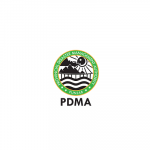Islamabad: The Special Investment Facilitation Council (SIFC) has instructed the Petroleum Division to revise the Brownfield Refinery Policy 2023 by September 31, 2025, if the government fails to resolve a tax exemption dispute that has stalled USD 6 billion worth of refinery upgrade projects.
According to official minutes from the SIFC’s Executive Committee meeting held on June 18 and released on July 1, the council has asked the Petroleum Secretary to communicate final, non-extendable deadlines for resolving the issue surrounding sales tax exemptions on petroleum products. Should the deadlock persist, the council expects a new version of the policy within three months, introducing additional fiscal incentives to make the delayed projects viable.
Read: Pak’s road network expands as SIFC clears new motorways
At the centre of the impasse is the International Monetary Fund’s (IMF) opposition to Pakistan’s proposal to either restore zero-rated status for petroleum products or impose a 10% sales tax, both aimed at improving project economics for domestic refineries. The IMF has expressed concern over the Federal Board of Revenue’s (FBR) enforcement capacity, pointing to past lapses, including under-invoicing in solar panel imports, as reasons to withhold approval.
The dispute has effectively frozen major investments aimed at upgrading local refineries to produce Euro-V standard fuel. Refineries argue that the exemption of sales tax on petroleum products under the FY2024–25 budget has made it impossible to claim input tax adjustments on crude oil imports, thereby reducing the internal rate of return (IRR) on planned upgrades and rendering them financially unfeasible.
Read: SIFC reviews infrastructure, investment plans, urges swift execution
Industry representatives also warn that the current tax structure risks undermining a USD 1.6 billion incentive package previously committed by the government over a seven-year period to support such upgrades. In a series of meetings in May, refinery CEOs urged both the petroleum and finance ministries to restore policy predictability by offering a seven-year tax stability framework to allow long-term investment in upgrading refining capacities.
While no long-term resolution has been reached, the Economic Coordination Committee (ECC) has approved a temporary measure to ease financial stress on refineries. The ECC raised the Inland Freight Equalization Margin (IFEM) by PKR 1.87 per litre for a 12-month period, effective through June 2025. This measure is expected to offset estimated losses of PKR 34 billion for refineries and oil marketing companies. However, stakeholders maintain that such stopgap solutions are insufficient, reiterating the need for comprehensive and permanent tax clarity.
Read: Foreign investment soars, economic stability strengthened by SIFC, Saudi Deals
In a separate move, the SIFC endorsed an agreement between Sui Southern Gas Company (SSGC) and Jamshoro Joint Venture Limited (JJVL) to restart the JJVL LPG-NGL extraction plant. The facility has been non-operational since June 2020. As per the agreement, operations are to resume by July 31, 2025, with gas pricing tied to the Weighted Average Cost of Gas (WACOG) as determined by the Oil and Gas Regulatory Authority (OGRA).
The developments signal a more assertive push by the SIFC to unlock stalled energy sector investments, particularly as Pakistan looks to modernize its refining capabilities while balancing fiscal constraints and IMF conditionalities.






